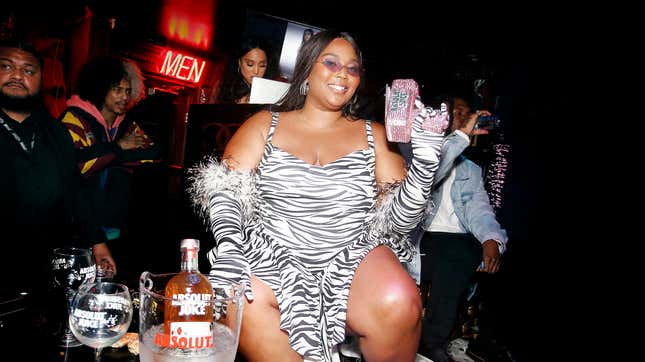Lizzo's Body Is Her Own
Latest

Once again, people have taken to the internet unprompted to tell Lizzo what they think she should do with her body. This recent backlash came after she shared on Instagram and Tik Tok that she recently completed a 10-day smoothie detox, during which she mostly consumed green smoothies, vegan protein bars, nuts, and lots of (alkaline) water. The response was immediate, with some fans and commenters claiming that the singer’s choice to do a cleanse contradicted her vocal support of body positivity, and that it endorsed the harmful and fatphobic beliefs behind diet culture. Others even said that her posts about her detox diet were “triggering” to people with eating disorders.
To be clear, there is a plethora of evidence showing that detoxes and cleanses are wholly unnecessary—after all, that’s what the kidneys and liver are for! But, unsurprisingly, the response to Lizzo was disproportionately intense and overly critical, despite the fact that Hollywood is full of thin celebrities who go on similar diets every day, sometimes even with the explicit goal of losing weight. When was the last time you saw this level of judgment directed towards any of the countless celebrities and influencers who advertise flat tummy tea?
It’s understandable that seeing such a visible fat Black woman subscribe to a part of diet culture might be upsetting to some of her fans (especially those who are also fat and Black), but the tone of the backlash Lizzo received reeked of entitlement—the kind of entitlement that people often feel over the bodies of Black women, and specifically fat Black women. While it can undeniably be powerful to see a famous fat Black woman loving herself loudly, Lizzo does not owe it to her supporters or anyone else to embody their projections of who she should be, or how she should behave, solely because of her fatness. Just because Lizzo is in the public eye does not mean that her body and the choices she makes about it are public domain.
-

-

-

-

-

-

-

-

-

-

-

-

-

-

-

-

-

-

-

-

-

-

-

-

-

-

-

-

-

-

-

-

-

-

-

-

-

-

-

-








































